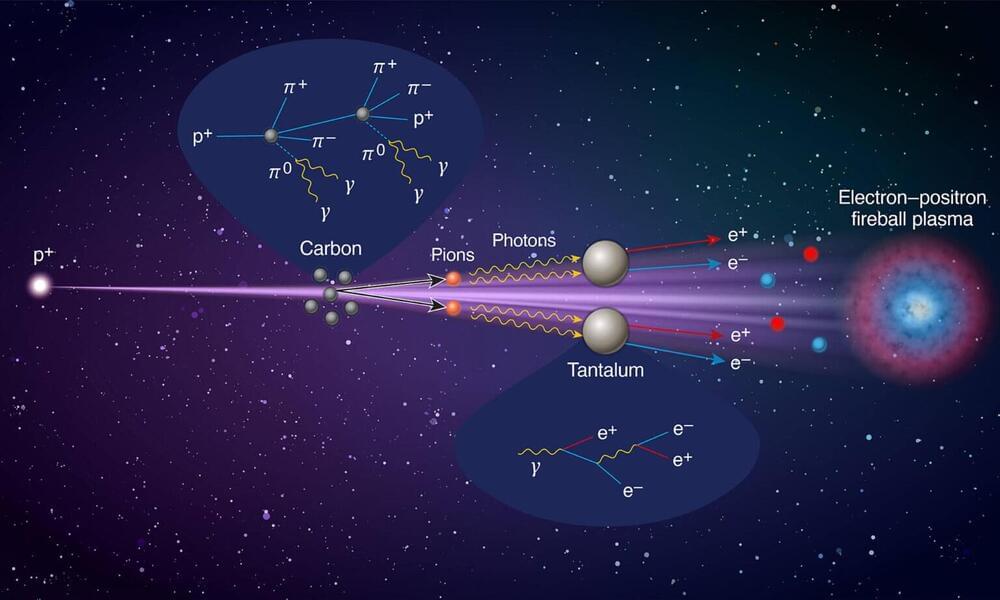Black holes and neutron stars are among the densest known objects in the universe. Within and around these extreme astrophysical environments exist plasmas, the fourth fundamental state of matter alongside solids, liquids, and gases. Specifically, the plasmas at these extreme conditions are known as relativistic electron-positron pair plasmas because they comprise a collection of electrons and positrons—all flying around at nearly the speed of light.
While such plasmas are ubiquitous in deep space conditions, producing them in a laboratory setting has proved challenging.
Now, for the first time, an international team of scientists, including researchers from the University of Rochester’s Laboratory for Laser Energetics (LLE), has experimentally generated high-density relativistic electron-positron pair–plasma beams by producing two to three orders of magnitude more pairs than previously reported. The team’s findings appear in Nature Communications.









Leave a reply